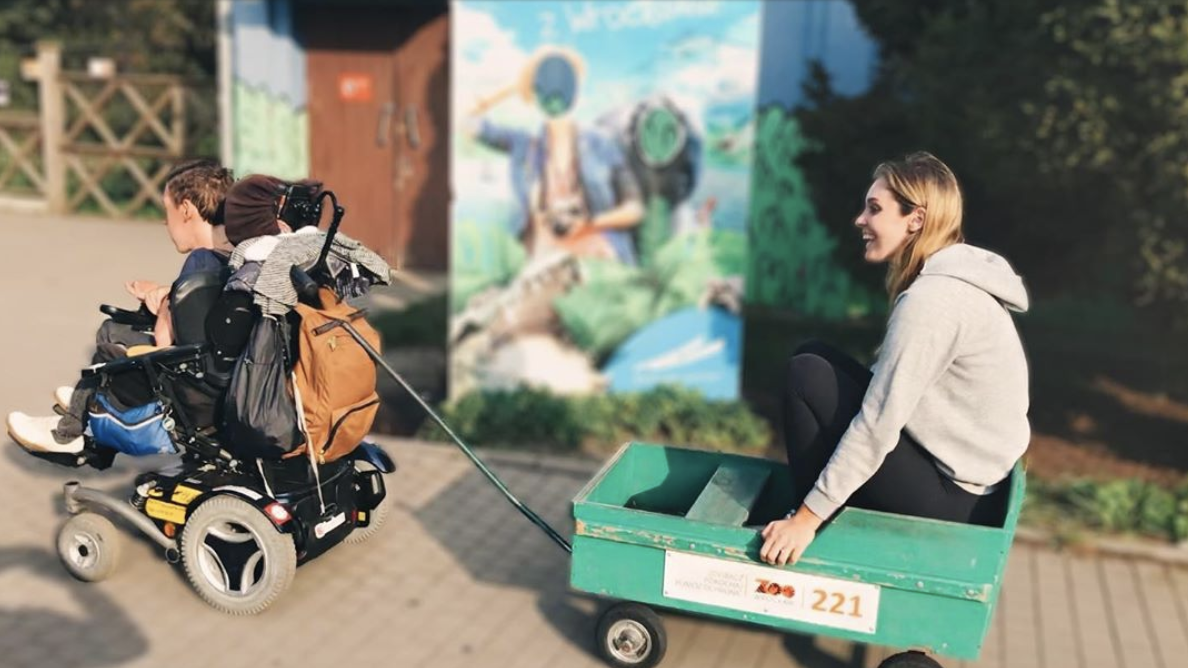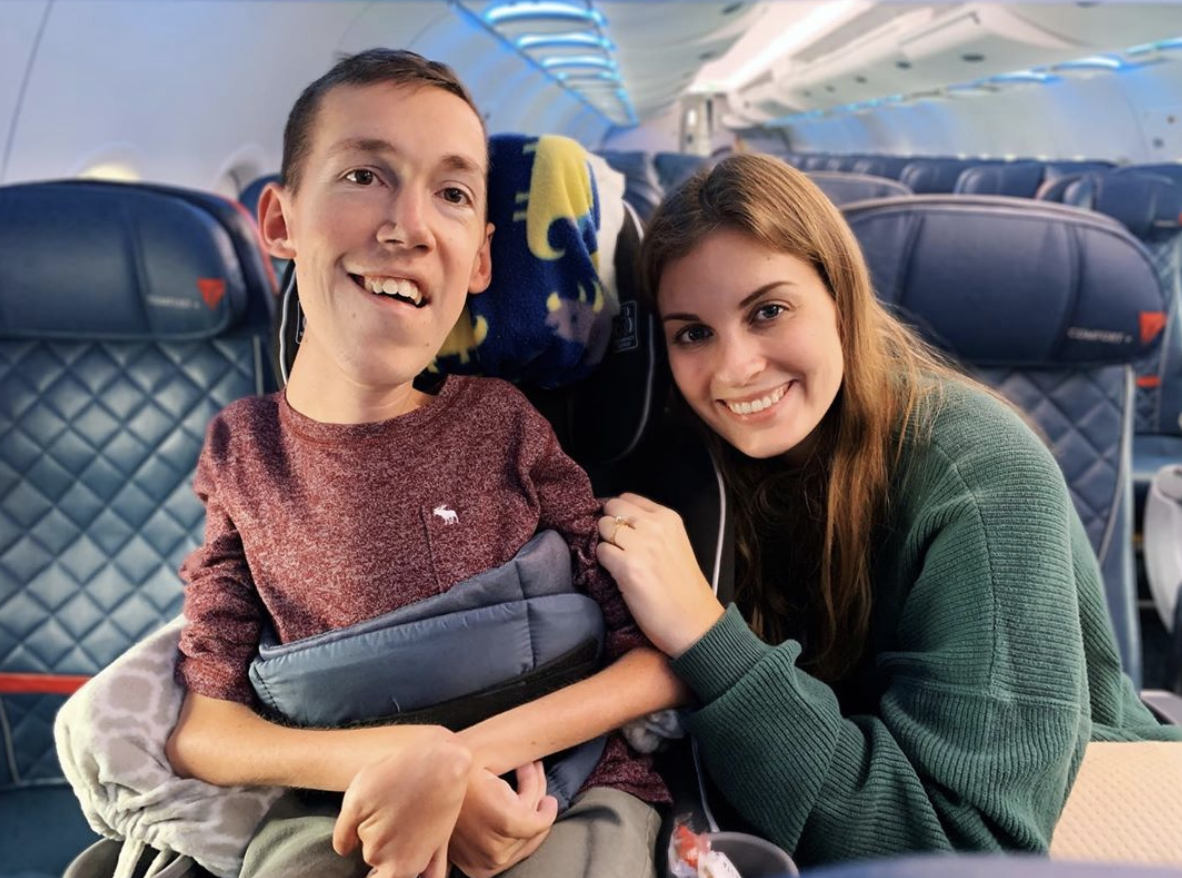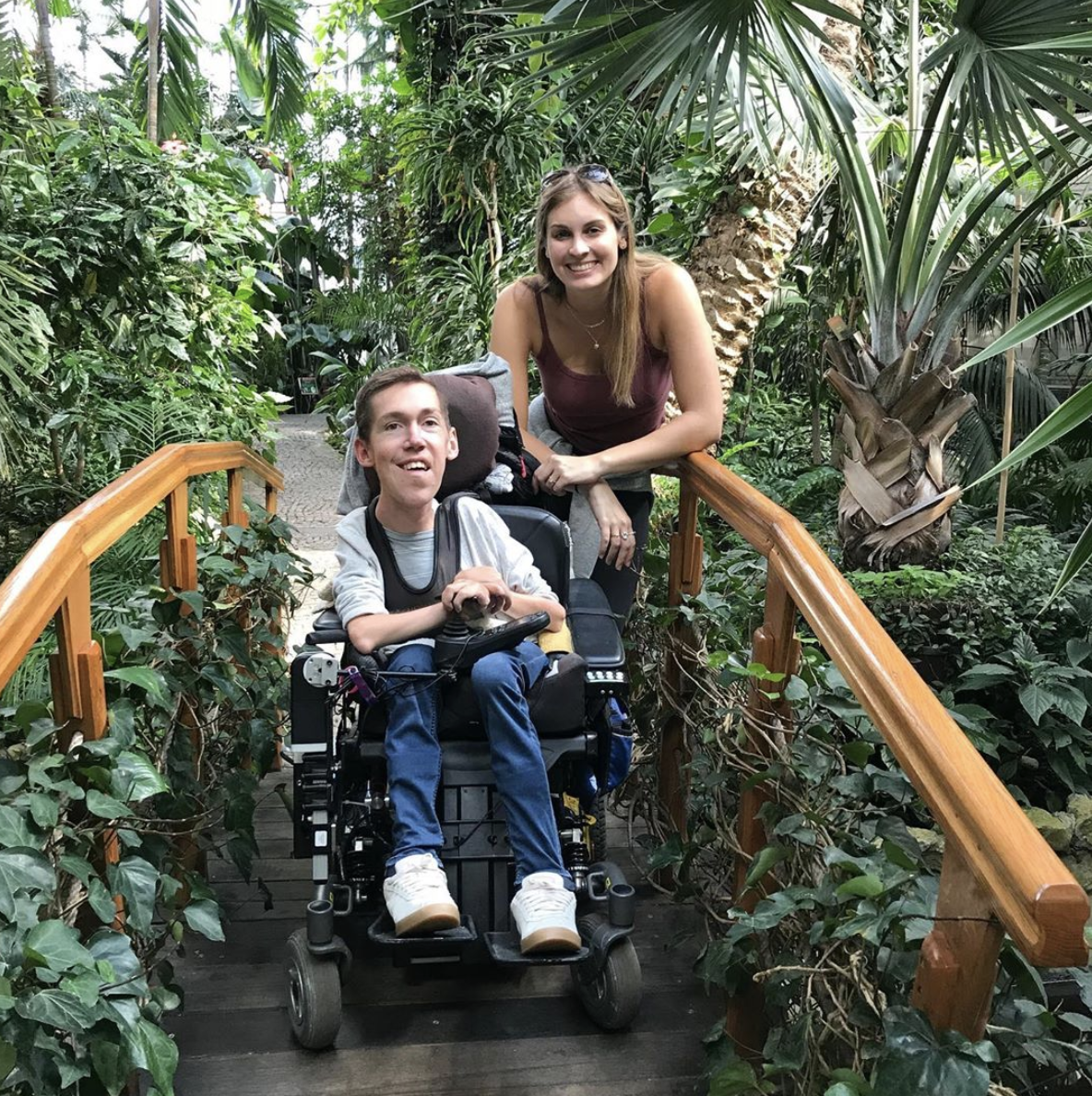YouTube Sensation Squirmy and Grubs Share Tips for Success in an Interabled Relationship

Five Lessons Learned While Balancing Romance and Caregiving
Shane Burcaw and Hannah Aylward are a couple close to our hearts at BraunAbility. They’ve entertained and educated millions through their YouTube channel Squirmy & Grubs, which captures their day-to-day lives as an interabled couple just living – and sometimes laughing at - their lives together. Shane wrote the following blog to share how they balance caregiving and romance as a couple.
It has already been about two years since I packed up my belongings and moved 1,000+ miles—Pennsylvania to Minnesota—to live with the woman of my dreams. Looking back on that period of exciting transition, I’m reminded of the nerve-wracking uncertainty that accompanied the anticipation. Moving halfway across the country is a significant undertaking for almost anyone, but in my specific case, it was also the first time that someone other than my parents would be acting as my primary caregiver.
When I arrived in Minneapolis, my daily care would be assumed by my girlfriend (now: fiancée) of two years, Hannah Aylward. The two of us were elated for the end of long-distance misery, and we felt confident that the caregiving situation was an opportunity to grow and learn together.
I’ve had many interesting experiences in my 27 years of living with Spinal Muscular Atrophy, but none have been as rewarding and challenging, and joyous as moving in with Hannah. Since November is National Family Caregivers Month, I figured now was a great time to share some of the biggest lessons we have learned in our first two years of balancing caregiving and our romantic relationship.

Lesson 1: Communication is key!
Strong communication practices help us avoid conflict and maintain a happy, healthy relationship. This is not a breakthrough discovery by any means, but it does carry slightly more importance when caregiving is involved. Because I rely on Hannah for most activities of daily living, it’s vital that the two of us are able to effectively discuss our wants and needs. For instance, sometimes Hannah will say, “Can we do your shower in the morning so that I can get some work done in the evening?” Similarly, if I know I need to wake up early for a phone call tomorrow, I do my best to talk about this with Hannah before it’s 11:00pm.
Most of the time, our wants and needs align, and there’s not much to discuss. But in the rare cases that we do have mismatched desires, talking through these situations openly is always better than remaining silent until it becomes a real issue.
Honestly, our most common disagreement usually occurs at the grocery store when we’re both craving different meals for dinner. Hannah is always quick to utilize her strong communication skills: “If you’d like me to lift you into bed tonight, we’ll be having pasta for dinner.”
Lesson 2: Romance and caregiving are not mutually exclusive activities.
Hannah and I run a YouTube channel about our relationship called “Squirmy and Grubs.” We have gained over 480,000 subscribers in our first year of making videos, and one of the most common comments we receive goes something like, “You should NEVER let your significant other be your primary caregiver. It doesn’t work!”
Besides the fact that these commenters are often ignorantly spewing rudeness just for the sake of being rude, they are also wrong. While some interabled couples might feel more comfortable hiring professional caregivers, there are plenty who use a situation like ours, where romance and caregiving are seamlessly intertwined.
It’s pretty simple. The moments when Hannah is performing “care” for me, like helping me fork food into my mouth, or helping me get dressed in the morning, are just another opportunity for us to be together and enjoy each other’s company. It’s not like we flip a switch and turn off our passion for each other just because Hannah happens to be doing my care. In fact, we often find that our romance and caregiving go hand-in-hand. We laugh and tell stories to each other while she’s showering me. We make fun of each other while she’s shaving my face. We pause to kiss when she’s combing my hair and can no longer resist my dashing good looks. We use the time spent caregiving as any two people in love spend their time together: laughing and play-arguing and loving.

Lesson 3: Having backup is helpful.
In our situation, our schedules are such that Hannah is usually around to perform my daily care. For the most part, I need help with my morning routine and my nighttime routine—maybe an hour of “care” all together. One thing we have learned, however, is that it’s nice to have other people who can assist when necessary. I have happily “trained” several of Hannah’s family members to assist with my care, which gives us some freedom if Hannah is ever under the weather, or traveling, or too busy to do my care on any particular day.
People often warn us with great urgency that Hannah will get “burned out” if she’s always doing my care. Hannah’s response to this makes me smile: “Shane’s care isn’t something I see as a chore or a burden. It’s just a fun part of our day together.”
Open communication about caregiver fatigue is important, as is having backup helpers. In the two years of doing my daily care, Hannah has not experienced burnout of any kind, except when I’m requesting my 14th head massage of the day. But I just do that to annoy her.
Lesson 4: Laugh often.
This lesson sounds like a silly motivational poster cliché, but it really is an essential part of our relationship. We both find humor in adversity, so when the going gets tough, we end up making jokes and laughing together, rather than arguing or getting stressed. This might be less of a “lesson” and more just a reason that we are so compatible together, but I can promise you that laughter is a helpful ingredient in our relationship. For example, a few weeks ago, I woke up at 3:00am with a horrible stomach virus requiring Hannah to emergency carry me from our bed to the bathroom. It was almost a very messy catastrophe, but instead of getting annoyed or angry about this difficult moment, we found ourselves laughing uncontrollably once disaster had been avoided.
Lesson 5: Express gratitude.
When you’re living with someone and experiencing much of daily life together, it can be easy to fall into a comfortable rhythm. Once it has been firmly established that you love and appreciate your partner, and they love and appreciate you, it’s easy to forget to keep telling and showing each other those truths. One of the most important lessons we have learned in the past two years is that simple acts of gratitude go a long way in keeping our romance alive and thriving. It can be as little as leaving a note for your partner to thank them for washing the dishes. Hannah KNOWS how much I love her and appreciate her for helping with my care, and that’s partly because I make it a point to always remind her of that fact.
If you and your loved one also balance caregiving within your relationship, I’d love to hear what lessons you’ve learned together! While we’re at it, don’t forget to check out BraunAbility’s Drive for Inclusion. If you or any of the caregivers in your life are interested, I’d urge you to sign up to become a part of The Driving Force and take their short inclusion survey. The awesome people at BraunAbility are aiming to tackle issues with mobility inclusion in our society, and your feedback can help inform their future actions!
Did you like this article? Keep up to date on the latest from The Driving Force by joining the community.
Related Articles:
Please add openform-driving-force-form,driving-force-form class to buttons to show this form.
